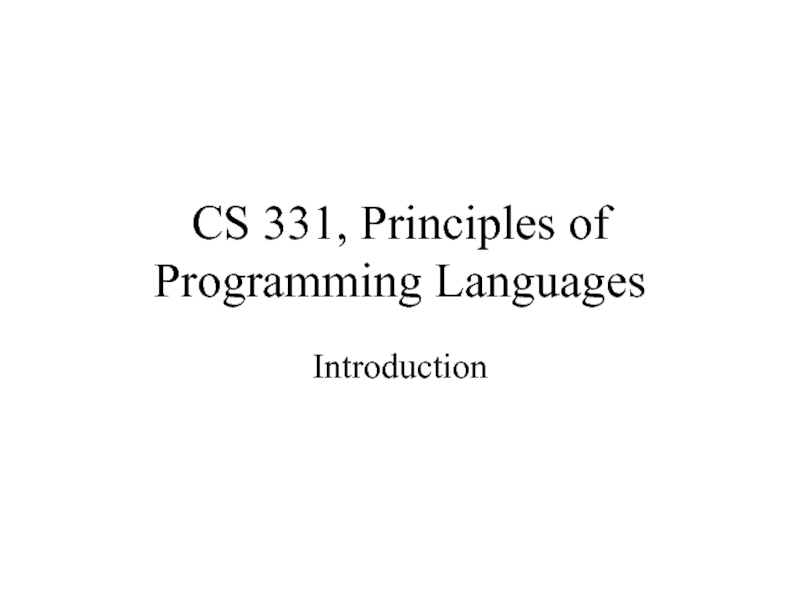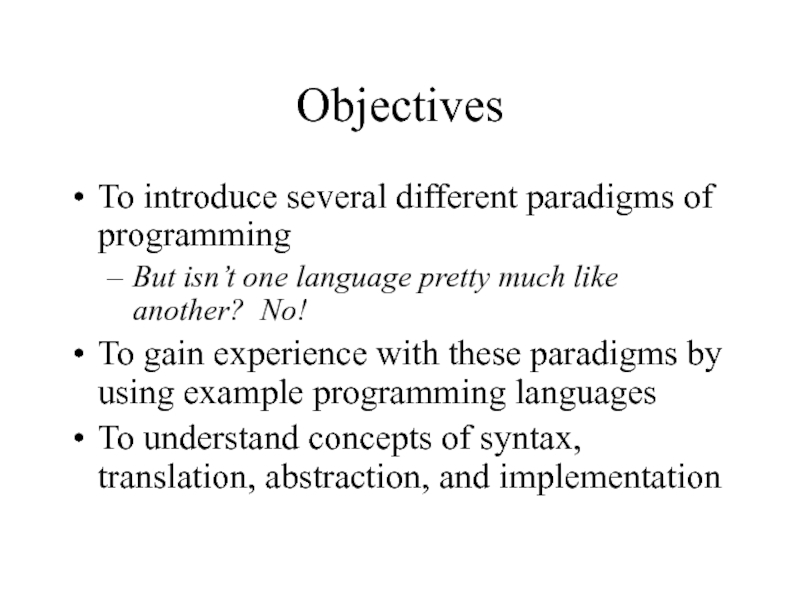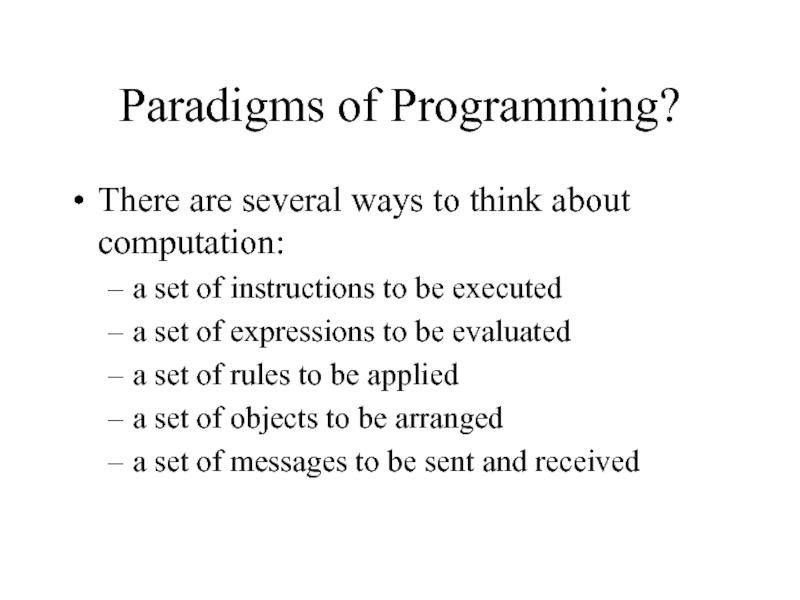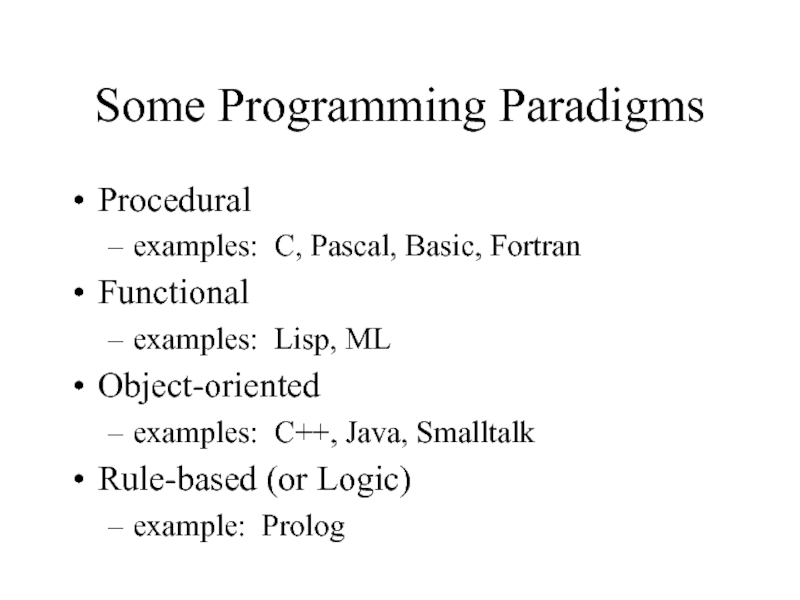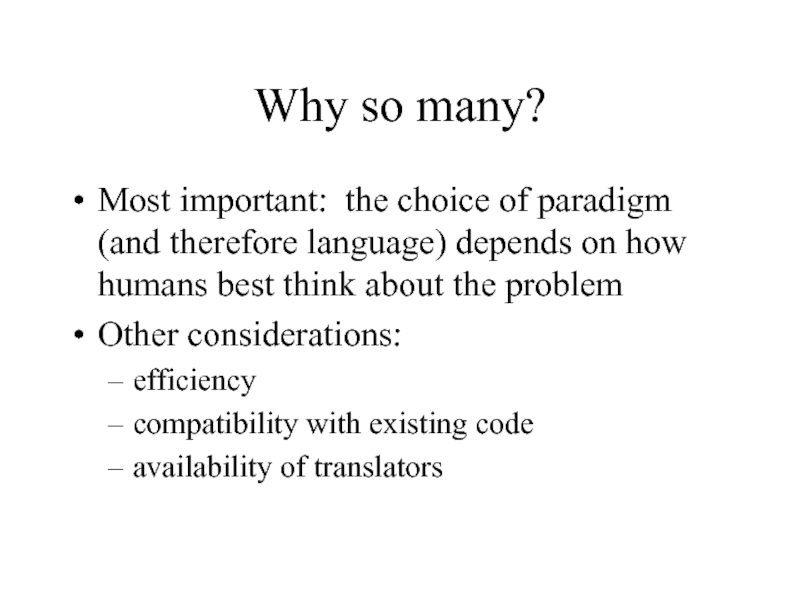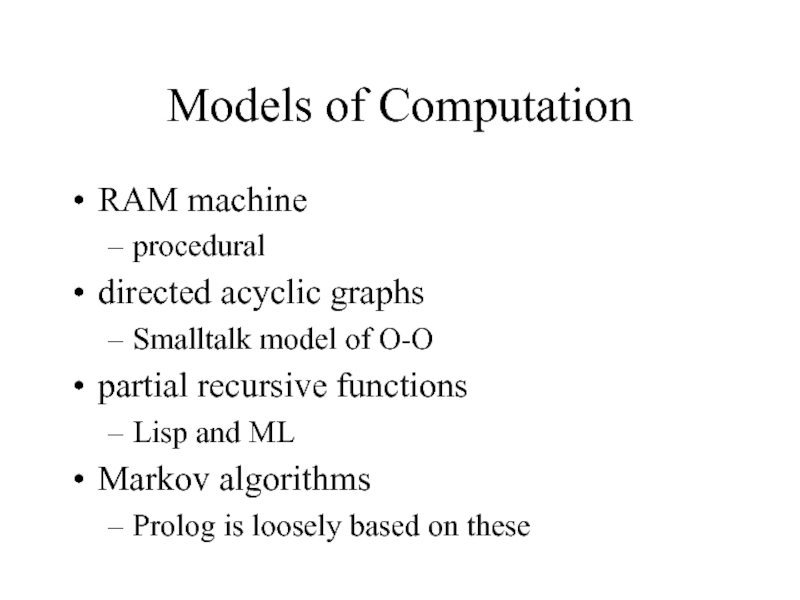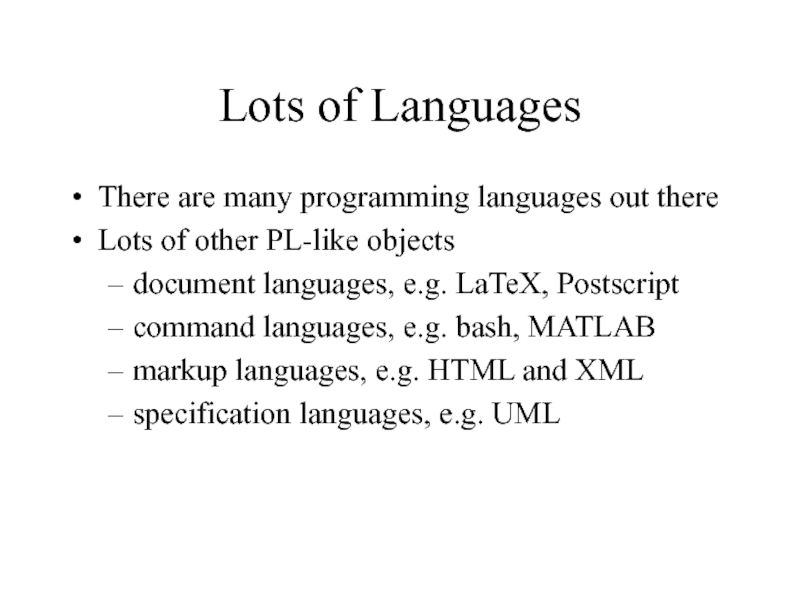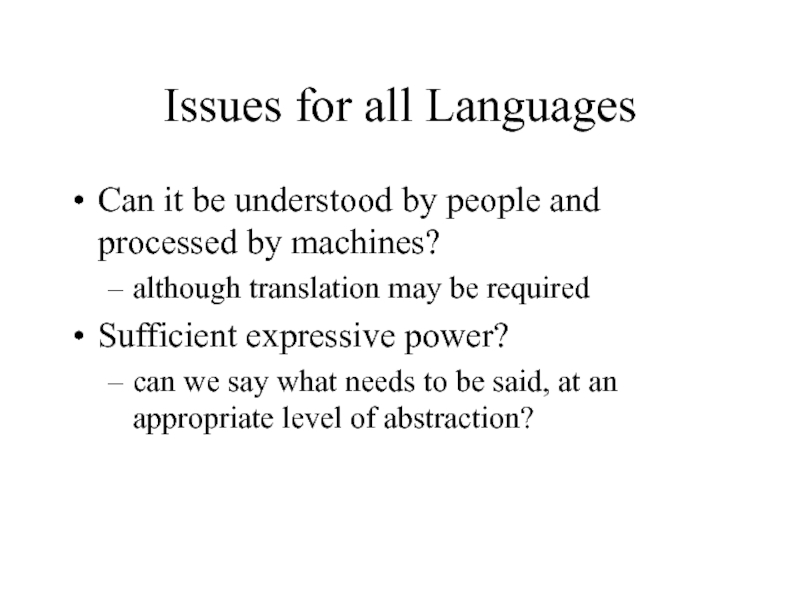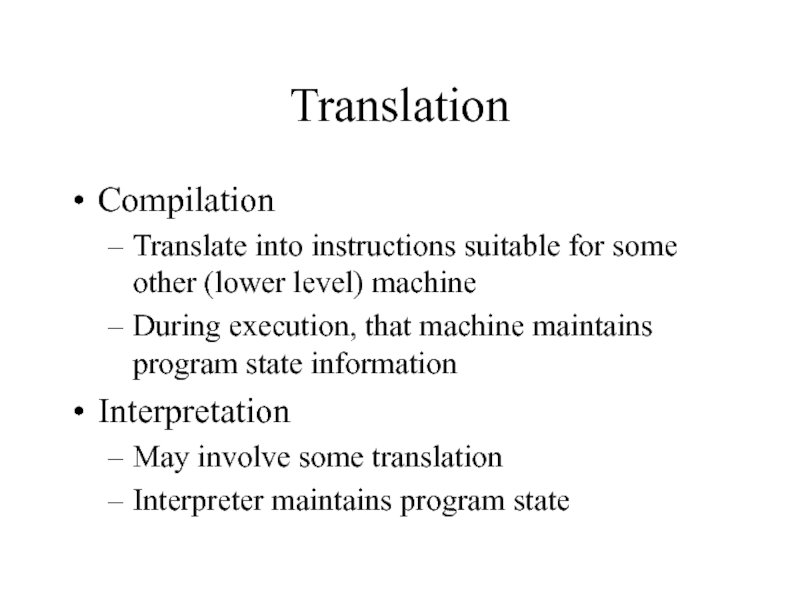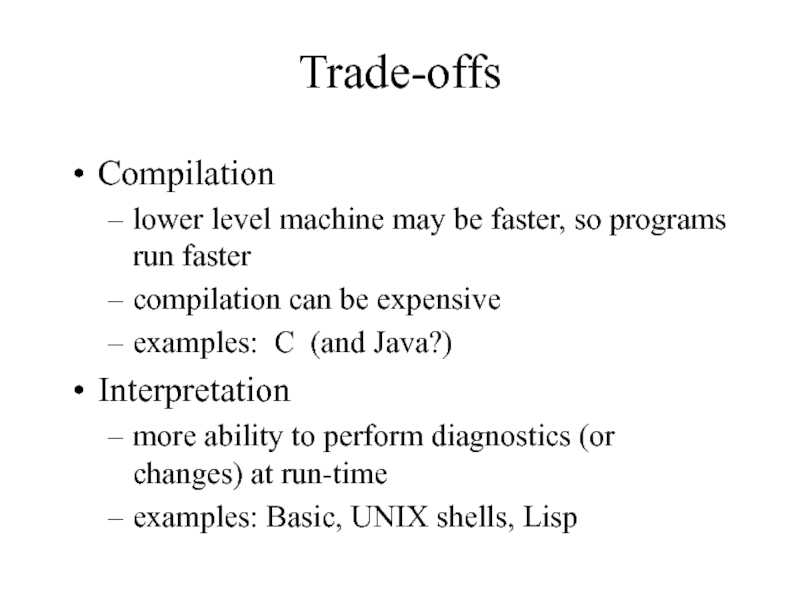- Главная
- Разное
- Дизайн
- Бизнес и предпринимательство
- Аналитика
- Образование
- Развлечения
- Красота и здоровье
- Финансы
- Государство
- Путешествия
- Спорт
- Недвижимость
- Армия
- Графика
- Культурология
- Еда и кулинария
- Лингвистика
- Английский язык
- Астрономия
- Алгебра
- Биология
- География
- Детские презентации
- Информатика
- История
- Литература
- Маркетинг
- Математика
- Медицина
- Менеджмент
- Музыка
- МХК
- Немецкий язык
- ОБЖ
- Обществознание
- Окружающий мир
- Педагогика
- Русский язык
- Технология
- Физика
- Философия
- Химия
- Шаблоны, картинки для презентаций
- Экология
- Экономика
- Юриспруденция
Principles of programming. Languages introduction. Objectives презентация
Содержание
- 1. Principles of programming. Languages introduction. Objectives
- 2. Objectives To introduce several different paradigms of
- 3. Paradigms of Programming? There are several ways
- 4. Some Programming Paradigms Procedural examples: C, Pascal,
- 5. Why so many? Most important: the choice
- 6. Models of Computation RAM machine procedural directed
- 7. Lots of Languages There are many programming
- 8. Issues for all Languages Can it be
- 9. Translation Compilation Translate into instructions suitable for
- 10. Trade-offs Compilation lower level machine may be
Слайд 2Objectives
To introduce several different paradigms of programming
But isn’t one language pretty
much like another? No!
To gain experience with these paradigms by using example programming languages
To understand concepts of syntax, translation, abstraction, and implementation
To gain experience with these paradigms by using example programming languages
To understand concepts of syntax, translation, abstraction, and implementation
Слайд 3Paradigms of Programming?
There are several ways to think about computation:
a set
of instructions to be executed
a set of expressions to be evaluated
a set of rules to be applied
a set of objects to be arranged
a set of messages to be sent and received
a set of expressions to be evaluated
a set of rules to be applied
a set of objects to be arranged
a set of messages to be sent and received
Слайд 4Some Programming Paradigms
Procedural
examples: C, Pascal, Basic, Fortran
Functional
examples: Lisp, ML
Object-oriented
examples: C++, Java,
Smalltalk
Rule-based (or Logic)
example: Prolog
Rule-based (or Logic)
example: Prolog
Слайд 5Why so many?
Most important: the choice of paradigm (and therefore language)
depends on how humans best think about the problem
Other considerations:
efficiency
compatibility with existing code
availability of translators
Other considerations:
efficiency
compatibility with existing code
availability of translators
Слайд 6Models of Computation
RAM machine
procedural
directed acyclic graphs
Smalltalk model of O-O
partial recursive functions
Lisp
and ML
Markov algorithms
Prolog is loosely based on these
Markov algorithms
Prolog is loosely based on these
Слайд 7Lots of Languages
There are many programming languages out there
Lots of other
PL-like objects
document languages, e.g. LaTeX, Postscript
command languages, e.g. bash, MATLAB
markup languages, e.g. HTML and XML
specification languages, e.g. UML
document languages, e.g. LaTeX, Postscript
command languages, e.g. bash, MATLAB
markup languages, e.g. HTML and XML
specification languages, e.g. UML
Слайд 8Issues for all Languages
Can it be understood by people and processed
by machines?
although translation may be required
Sufficient expressive power?
can we say what needs to be said, at an appropriate level of abstraction?
although translation may be required
Sufficient expressive power?
can we say what needs to be said, at an appropriate level of abstraction?
Слайд 9Translation
Compilation
Translate into instructions suitable for some other (lower level) machine
During execution,
that machine maintains program state information
Interpretation
May involve some translation
Interpreter maintains program state
Interpretation
May involve some translation
Interpreter maintains program state
Слайд 10Trade-offs
Compilation
lower level machine may be faster, so programs run faster
compilation can
be expensive
examples: C (and Java?)
Interpretation
more ability to perform diagnostics (or changes) at run-time
examples: Basic, UNIX shells, Lisp
examples: C (and Java?)
Interpretation
more ability to perform diagnostics (or changes) at run-time
examples: Basic, UNIX shells, Lisp
